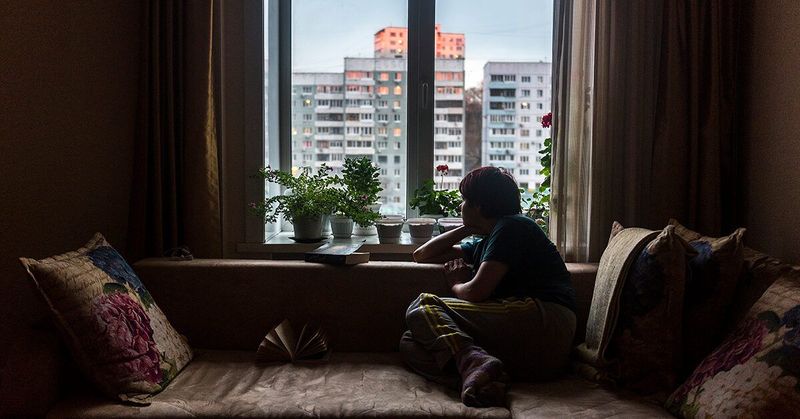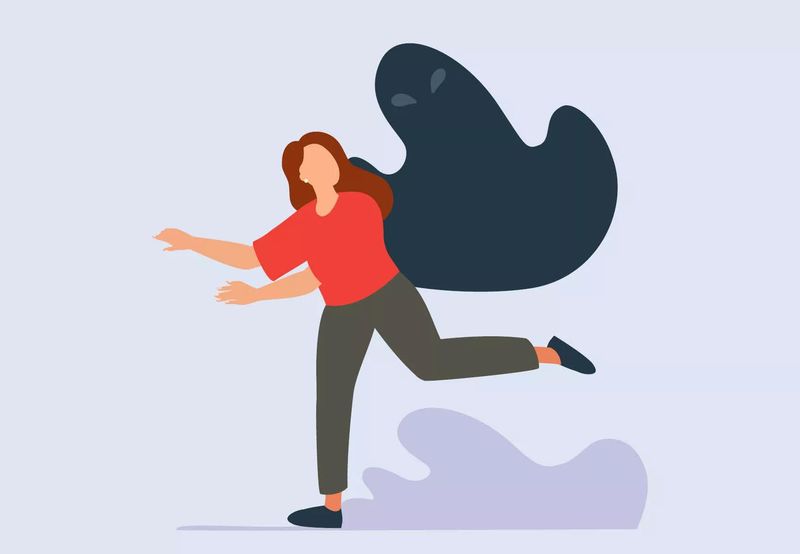17 Subtle Mannerisms Often Exhibited By Survivors Of Narcissistic Abuse
Ever tried putting words to the bruises narcissistic abuse leaves behind—the ones no one can see, but you feel every darn day? Yeah… it’s like screaming in a soundproof room. Unless you’ve lived it, you probably don’t get it. And if you haven’t? Odds are, someone you love does.
These aren’t just “quirks” or “fun little habits.” They’re survival instincts—battle scars dressed up as normal. They’re the way we check our tone five times before hitting send. The way we shrink ourselves to keep the peace. Subtle. Quiet. But powerful as heck.
So here it is: seventeen mannerisms that might sound a little too familiar. Not because you’re broken—heck no. But because you’re still standing. And that? That’s badass.
1. Excessive Apologizing

Have you ever noticed how quick you are to say sorry? Even for things that aren’t your fault—a spilled drink, a missed call, an awkward silence. It’s almost automatic. The words slip out before you even know why.
For me, apologizing became a habit because keeping the peace was everything. It meant fewer arguments, less drama, maybe a quiet evening. But after a while, it just felt like I owed the world an apology for existing.
It’s not a weakness. It’s survival. You learn to stay small and hope nobody will make you smaller. The hardest part is realizing you don’t need to apologize for breathing. Healing starts when you notice how often that word comes out—and start asking yourself, who actually needed to hear it? Maybe it wasn’t you.
2. Avoiding Eye Contact

You know that feeling when looking someone in the eyes feels too exposed? For me, holding eye contact always felt like standing in the line of fire. If the narcissist caught even a flicker of defiance, the backlash was immediate.
So, you learn to look away. Stare at your coffee, your shoes, anything but their face. It becomes muscle memory. Even with safe people, your gaze drifts—like your eyes are still guarding the door, ready to bolt.
Sometimes, people take it as shyness or coldness. But it’s not about them. It’s about safety. The habit sticks, long after the danger is gone. Learning to meet someone’s eyes again feels like a small rebellion—one that takes time.
3. Over-Cleaning Their Surroundings

Some people call it a neat freak. I call it keeping chaos at bay. When everything around me looked perfect, maybe nobody would notice how messy I felt inside.
During the worst days, I scrubbed the same counter three times before breakfast. It wasn’t about germs. It was about control. When you can’t fix the person who hurts you, you start fixing chairs, floors, anything that will stay put.
It never made me feel safe, not really. But it bought me a few quiet moments. Once, I caught myself apologizing for a speck of dust that wasn’t even there. That’s when I realized: the mess wasn’t in my house—it was in my head, and it wasn’t mine to clean.
4. Double-Checking Locked Doors at Home

There’s nothing casual about how I check locks. It’s not just once—sometimes it’s three or four times in a row. My friends tease about it, but they don’t get it. My nervous system remembers every slammed door, every threat that followed me home.
It’s about more than safety. It’s about making sure nobody can come in uninvited—not just physically, but emotionally. The world outside feels unpredictable, so I build little rituals to keep myself secure.
Some nights, I’ve turned around halfway down the block just to check again. Is it overkill? Maybe. But for me, peace of mind comes in double-checks. It’s the price I pay for feeling like I can finally rest.
5. Preferring to Eat or Travel Alone

I used to dread eating in public alone. Now, sometimes it’s the only way I feel free to taste my food, or just breathe. When you’ve spent years being watched, judged, or picked at across the table, solitude becomes a quiet sanctuary.
Traveling with someone used to mean bracing myself for criticism—wrong turn, wrong snack, wrong music. Alone, I get to make decisions without fear. I can miss an exit or order dessert, and no one rolls their eyes.
People sometimes think I’m lonely. Truth? I’m reclaiming my space. Being alone isn’t about shutting people out. It’s learning that my company is enough, and I can actually enjoy it again.
6. Stuttering or Word-Finding Difficulties

Ever get halfway through a sentence and suddenly your words just vanish? That’s me—especially when I’m nervous. I used to speak so freely, but the more I was told I was “crazy” or “too sensitive,” the more I second-guessed every word.
It’s not just nerves. It’s my mind tripping over all those old landmines: Will I sound stupid? Will they believe me? Silence became safer than saying the wrong thing. Sometimes, I still lose my train of thought, and I see people glance away, awkward for both of us.
But I keep talking. Every stammer or pause is proof—I’m still using my voice. Maybe it’s messy, but it’s mine.
7. Brushing Off Compliments

“You look great today!”—and suddenly, I’m scrambling for jokes or changing the subject. Compliments used to feel like bait, not gifts. Every nice word could be a setup for a punchline, or worse, a reminder I didn’t deserve it.
I learned to dodge praise—not because I’m humble, but because I’m suspicious. If you spend years being told you’re never enough, it’s hard to believe someone means it when they say you are.
At times, I wish I could just say thanks and let it land. I’m working on that. Maybe next time, I’ll try.
8. Hyperventilating When Proving a Point

You’d think I was running a marathon, the way my chest tightens during an argument. When I try to stand my ground or explain myself, my body acts like it’s facing a firing squad. I get lightheaded. Words tumble out quick, desperate.
It’s not about the actual fight—it’s about every time my opinions were ridiculed or twisted back on me. My breath races because my mind still expects to be punished for simply existing in disagreement.
I catch myself, occasionally, and force a slow breath. It doesn’t always help, but at least now, I know what’s happening. My body didn’t betray me. It’s remembering. And I learn to forgive it.
9. People-Pleasing

If there’s a way to make everyone happy, I’ll find it—even if it leaves me running on empty. People call me agreeable, but it just means I’m scared to say no. I spent years learning that the safest path was the one of least resistance.
So, I anticipate needs before they’re even spoken. I offer to help, to fix, to smooth things over. It’s exhausting, but at least it keeps the peace. Or so I believed.
Lately, I try to pause before jumping in. Not every problem is mine to solve. The world won’t collapse if I let it wobble for a minute. That’s what my husband tells me and I repeat to myself every day.
10. Over-Explaining

I notice I tell the long version of every story. I pack in every tiny detail, every motive, just to make sure nobody gets the wrong idea. It’s like I defend myself before the accusation even lands.
Years of being misinterpreted taught me to leave no room for misunderstanding. Every conversation felt like a cross-examination. Now, I catch myself rambling, as if silence is a sign of guilt.
It’s a hard habit to break. But sometimes, I shut up halfway through a sentence, just to see what happens. Usually, the world keeps spinning, and nobody’s mad. Turns out, I don’t have to build a case for my own existence.
11. Speaking Hesitantly

From time to time the words get stuck before they even reach my lips. I weigh every thought, every opinion, afraid the wrong one will turn the room cold. Back then, speaking up only meant trouble—so I learned to tiptoe through every conversation.
Now, even with friends, I catch myself editing as I speak. I use softer words, trail off, wait for someone to cut me down. It’s like I still wait for the punishment that never comes.
I wish I could talk loud and fast—just once, without the filter. Maybe someday. For now, I let myself finish my thought, even if my voice shakes.
12. Minimizing Their Feelings/Needs

Ever catch yourself saying, “It’s fine, really, don’t worry about me”—even when it’s absolutely not fine? I’d rather downplay my needs than risk being a burden. Years of being brushed aside taught me that my feelings were too much, or just too inconvenient.
Now, I qualify everything I want. “I’d love to, but it’s not important…” It’s a reflex, like flinching from a hot stove. The less I need, the less I ask, the safer I feel. But the emptiness lingers, long after the conversation ends.
I’m learning to say what I need, even if my voice is quiet. Some days, that feels like a revolution.
13. Self-Isolation

Being around people feels like too much. I retreat—not because I hate company, but because I’m tired of explaining myself. The narcissist made sure I doubted every friendship, every connection.
So I drifted away. Skipped gatherings. Let calls go to voicemail. It felt safer to be alone, at least for a while. But too much solitude becomes its own kind of pain.
Now, I try to reach out—one message, one coffee date at a time. It’s slow, and awkward, and sometimes I still bail at the last minute. But I want to remember what it’s like to belong somewhere again.
14. Hypervigilance and Anxiety

It’s like my body never really settled down. My muscles stay tense, ready for the next blowup that might never come. I always scan for threats—a raised voice, a slammed door, a shift in someone’s tone.
This kind of hyper-awareness isn’t a gift. It’s a leftover alarm bell from years spent walking on eggshells. I catch myself reacting to harmless things as if they’re emergencies.
I work on turning down the volume. Not every sharp sound is danger. More times, it’s just life happening and I’m allowed to be calm in it.
15. Dissociative Symptoms

Ever look up and realize you missed the last five minutes of your own life? I do. During the worst times, dissociation was my escape hatch—a way to survive conversations that felt like interrogations.
Now and then, I’d watch myself from the outside, like I was in a movie I didn’t want to star in. It kept the pain farther away, at least for a little while. But it also made it hard to feel real, or to trust my own memories.
Now, I check in with myself: Am I here? Am I safe? Most days, I am. But it still takes effort to stay present, especially when things get hard.
16. Learned Helplessness

After enough failed attempts to change things, you start to believe nothing will ever work. That’s where I found myself—trapped in a cycle of giving up before I even tried. The narcissist convinced me my efforts were pointless.
I stopped asking for help. I stopped setting boundaries. Even small choices felt impossible. It felt easier to let life just happen to me than risk another disappointment.
It’s a slow climb back. I celebrate little wins now—making a phone call, saying no, changing my mind. Each is proof I’m not powerless, even when my history tries to convince me otherwise.
17. Suppressed Anger

Anger isn’t allowed—at least, that’s what I was taught. If I snapped, even for a second, it always came back to bite me. The safest thing was to choke down every spark of outrage, smile through the sting, keep the peace at all costs.
But anger doesn’t disappear. It seeps out sideways—into headaches, tight shoulders, or icy silences I can’t explain. Sometimes it turns into sadness, sometimes it just simmers underneath everything I say.
Now, I try to let anger exist, even if it’s just in private. I remind myself it’s not dangerous—it’s just another feeling. And honestly, it means I still care what happens to me.







